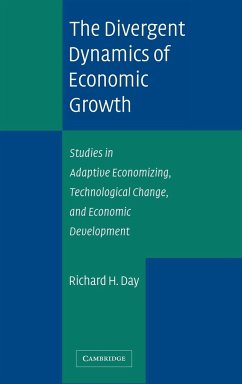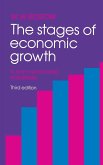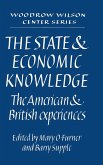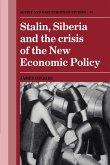Short description/annotation
Offers a synthesis of classical economics with contemporary concepts of adaptation and economic evolution.
Main description
This book explains how changing technology and economizing behaviour induce vast changes in productivity, resource allocation, labour utilization, and patterns of living. Economic growth is seen as a process by which businesses, regimes, countries, and the whole world pass through distinct epochs, each one emerging from its predecessor, each one creating the conditions for its successor. Viewed from a long-run perspective, growth must be characterized as an explosive process, marked by turbulent transitions in social and political life as societies adapt to new opportunities, the demise of old ways of living, and to the vast increase and redistribution of human populations. The book is based on a synthesis of classical economics and contemporary concepts of adaptation and economic evolution. Although it is based on analytical methods, the text has been stripped of all equations and with few exceptions is devoid of technical jargon.
Table of contents:
Preface; Acknowledgments and comments; 1. The adaptive, evolutionary theory of divergent economic growth; Part I. Global Trends and Adaptive Economics: 2. Global trends, world models and human adaptation; 3. Adaptive economic theory and modeling; Part II. Technological Change in Agriculture and Industry: 4. The economics of technological change and the demise of the sharecropper; 5. Economic development as an adaptive process: a green revolution case study Richard H. Day and Inderjit Singh; 6. Industrial development and technological change Richard H. Day, Masatoshi Abe, Jon Nelson, William K. Tabb and Che Tsao; 7. An adaptive economizing analysis of Chinese enterprises under alternative reform regimes Richard H. Day, Zhigang Wang and Gang Zou; Part III. Epochal Development: 8. Economic development and migration Richard H. Day and Yiu-Kwan Fan; 9. Instability in the transition from manorialism: a classical analysis; 10. Do economies diverge(?)33; Economic development in the very long run Richard H. Day and Oleg Pavlov; Part IV. Toward a General Theory of Development: 11. Economics far from equilibrium; 12. The dialectical republic: toward a general theory of the coevolution of market and state; Index.
Offers a synthesis of classical economics with contemporary concepts of adaptation and economic evolution.
Main description
This book explains how changing technology and economizing behaviour induce vast changes in productivity, resource allocation, labour utilization, and patterns of living. Economic growth is seen as a process by which businesses, regimes, countries, and the whole world pass through distinct epochs, each one emerging from its predecessor, each one creating the conditions for its successor. Viewed from a long-run perspective, growth must be characterized as an explosive process, marked by turbulent transitions in social and political life as societies adapt to new opportunities, the demise of old ways of living, and to the vast increase and redistribution of human populations. The book is based on a synthesis of classical economics and contemporary concepts of adaptation and economic evolution. Although it is based on analytical methods, the text has been stripped of all equations and with few exceptions is devoid of technical jargon.
Table of contents:
Preface; Acknowledgments and comments; 1. The adaptive, evolutionary theory of divergent economic growth; Part I. Global Trends and Adaptive Economics: 2. Global trends, world models and human adaptation; 3. Adaptive economic theory and modeling; Part II. Technological Change in Agriculture and Industry: 4. The economics of technological change and the demise of the sharecropper; 5. Economic development as an adaptive process: a green revolution case study Richard H. Day and Inderjit Singh; 6. Industrial development and technological change Richard H. Day, Masatoshi Abe, Jon Nelson, William K. Tabb and Che Tsao; 7. An adaptive economizing analysis of Chinese enterprises under alternative reform regimes Richard H. Day, Zhigang Wang and Gang Zou; Part III. Epochal Development: 8. Economic development and migration Richard H. Day and Yiu-Kwan Fan; 9. Instability in the transition from manorialism: a classical analysis; 10. Do economies diverge(?)33; Economic development in the very long run Richard H. Day and Oleg Pavlov; Part IV. Toward a General Theory of Development: 11. Economics far from equilibrium; 12. The dialectical republic: toward a general theory of the coevolution of market and state; Index.








